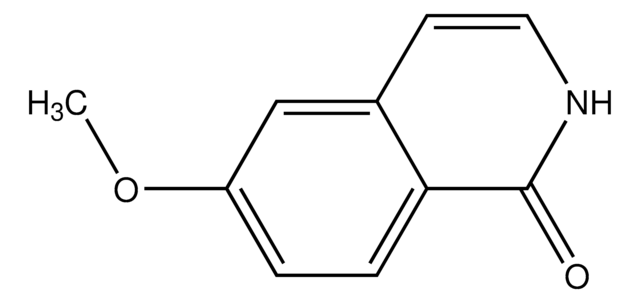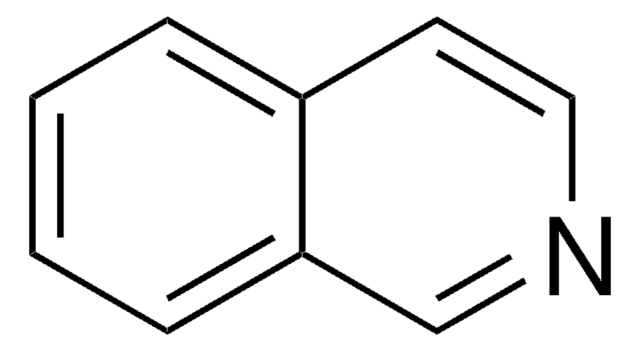A7479
5-AIQ hydrochloride
≥97% (HPLC), solid
Synonym(s):
5-Aminoisoquinolinone hydrochloride
About This Item
Recommended Products
Assay
≥97% (HPLC)
form
solid
color
tan
solubility
DMSO: >20 mg/mL
H2O: >20 mg/mL
storage temp.
−20°C
SMILES string
Cl[H].Nc1cccc2C(=O)NC=Cc12
InChI
1S/C9H8N2O.ClH/c10-8-3-1-2-7-6(8)4-5-11-9(7)12;/h1-5H,10H2,(H,11,12);1H
InChI key
KWNLARCFSYAXLT-UHFFFAOYSA-N
Application
Biochem/physiol Actions
Signal Word
Warning
Hazard Statements
Precautionary Statements
Hazard Classifications
Eye Irrit. 2 - Skin Irrit. 2 - STOT SE 3
Target Organs
Respiratory system
Storage Class Code
11 - Combustible Solids
WGK
WGK 3
Flash Point(F)
Not applicable
Flash Point(C)
Not applicable
Personal Protective Equipment
Certificates of Analysis (COA)
Search for Certificates of Analysis (COA) by entering the products Lot/Batch Number. Lot and Batch Numbers can be found on a product’s label following the words ‘Lot’ or ‘Batch’.
Already Own This Product?
Find documentation for the products that you have recently purchased in the Document Library.
Our team of scientists has experience in all areas of research including Life Science, Material Science, Chemical Synthesis, Chromatography, Analytical and many others.
Contact Technical Service







